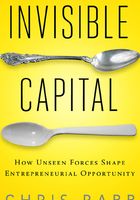
Unknowns Worth Knowing
In a country so obsessed with starting up one’s own business, inventing, pioneering, and becoming one’s own boss, you might imagine that we know quite a bit about the landscape of modern American enterprise.
We don’t.
In fact, generally speaking, Americans are entrepreneurial illiterates. We know very little about the inputs, outputs, and outcomes related to our vibrant entrepreneurial sector. We don’t know much about its composition, productivity, or impact, let alone its history. This sad reality is not a consequence of low intelligence, however, just sparse knowledge. We think we are well informed because we watch a lot of television. We also know a lot of people who have started businesses (or at least are always talking about starting one). And, of course, we patronize innumerable businesses in our neighborhoods, near where we work, wherever we travel, and wherever we surf online.
Wordsmith extraordinaire Donald Rumsfeld, President George W. Bush’s first secretary of defense, offered as clear a statement as I’ve found on the state of entrepreneurship (he was, of course, talking about the state of the war in Iraq):
Figure 5
How Close to Average Is Your Chance of Success in Business?

Reports that say that something hasn’t happened are always interesting to me, because as we know, there are known knowns; there are things we know we know. We also know there are known unknowns; that is to say, we know there are some things we do not know. But there are also unknown unknowns—the ones we don’t know we don’t know. And if one looks throughout the history of our country and other free countries, it is the latter category that tends to be the difficult ones.
We think we know, generally, what entrepreneurship is. We may realize we don’t know everything about starting our own enterprise. But there is a whole host of significant facts about entrepreneurship that we don’t even know that we don’t know.
How are most new businesses started? Almost half of all new enterprises were seeded with their founders’ personal funds. Fewer than 4 percent of start-ups run by family members raise money from friends. Related co-founders of new ventures are 15 times less likely to raise funds from friends than are their nonfamily counterparts. Yet about 80 percent of all U.S. businesses are family owned. Roughly half of all new businesses are started out of their founders’ homes.
On a related note, firms started by business owners who have run two or three previous businesses have higher survival rates than those started by first-timers. Most family-owned businesses rarely survive past the second generation of owners. Venture capital–backed firms accounted for 11 percent—or about 12 million—of the 115 million private sector jobs in 2008.
Most family-owned businesses rarely survive past the second generation of owners. Venture capital–backed firms accounted for 11 percent—or about 12 million—of the 115 million private sector jobs in 2008.
Perhaps the single most useful fact for politicians during economic downturns and campaign seasons is that firms operating for over twenty-five years, irrespective of size, create more net jobs than new firms. In fact, according to the U.S. Department of Labor, no category of younger firms creates net jobs. This single, woefully underreported fact suggests that the real engine of sustained economic growth is U.S. firms that have mature, time-tested management and long track records—firms that may also be entrepreneurial even though they are not necessarily young or small-scale ventures. Too often, politicians and uncritical entrepreneurship boosters purposely or unintentionally equate “small businesses” with entrepreneurial ventures, innovation with advanced technology, new with better, and family owned with small.
This single, woefully underreported fact suggests that the real engine of sustained economic growth is U.S. firms that have mature, time-tested management and long track records—firms that may also be entrepreneurial even though they are not necessarily young or small-scale ventures. Too often, politicians and uncritical entrepreneurship boosters purposely or unintentionally equate “small businesses” with entrepreneurial ventures, innovation with advanced technology, new with better, and family owned with small.
The truth of the matter is that entrepreneurship is a process—a way of thinking—more than a firm’s size, age, industry, or organizational setup. Apple Inc. is the world’s highest-valued publicly traded technology company, recently outpacing Microsoft—and, arguably, a highly entrepreneurial entity, despite having over 17,000 employees. Ford Motor Company is family owned in that the Ford family still owns about a 40 percent stake in the business and until recently the company was run by a descendant of the founder. So too are Motorola, Rupert Murdoch’s News Corp., Johnson & Johnson, Wal-mart, and Tyson Foods—none of which can be mistaken for small on any level. General Electric prides itself on innovation, yet it is no spring chicken, having been founded by the iconic American inventor Thomas Alva Edison in 1890.
General Electric prides itself on innovation, yet it is no spring chicken, having been founded by the iconic American inventor Thomas Alva Edison in 1890.
What we learn from these facts—besides understanding just how difficult it is to build a business—is that it’s a good idea to ask what kinds of businesses are most viable and how they got started.